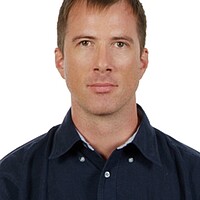Taiwanese trade higher pay and secure jobs for slower lifestyle
Loading...
| Tainan, Taiwan
Kao Yao-wei was living in Taiwan’s dense capital of 2.6 million people and decided one day after 15 years to get out. He and his wife had discovered a smaller city, Tainan, while doing research for a book.
They left Taipei in 2010 and set up a crafts store with a Chinese-style book-signing ceremony room in an old touristy neighborhood on a third of the capital’s rents.
“It’s easier to live here,” says Mr. Kao, formerly a mobile content developer’s assistant. “In Taipei, everyone’s so competitive that they’re unhappy. It would be tougher to open a store in Taipei. It would be expensive and it might be hard even to find a space.”
Kao’s story is becoming Taiwan’s. In most of Asia, from Bangkok to Beijing, big cities pack people in from smaller ones to vie for the best paid jobs, despite high property prices and distance from extended families. In Taiwan, for most of the past century the thing to do was migrate to Taipei.
But Taiwanese are now trading Taipei’s higher pay and secure day jobs for less stressful, more personally rewarding careers in music, coffee brewing, guesthouse management, or ecologically friendly farming.
“The trend reflects a lifestyle choice, and increasingly, a business decision,” says Wai Ho Leong, regional economist with Barclays Capital in Singapore.
Downshifting
About 166,000 people moved last year to Taipei, the island’s biggest city and major job market, while just 157,000 left, official statistics show. Numbers of inbound and outbound residents were roughly equal for the past decade.
Although statistics do not portray an exodus, government-run Panorama magazine notes a flight toward rural regions that began a decade ago in line with movements in the United States, Australia, and New Zealand to “downshift” and permanently withdraw from high-stress urban living.
“These individuals haven’t failed to ‘make it’ in the city,” the magazine reported. “Instead, their desire to get back to the country represents a first step on their path to settling down.”
Today, the co-owner of a guesthouse outside Taroko National Park, known for its vertical canyon walls, comes from Taipei. The man behind a surfer’s B&B in southern Taiwan national park also once lived in the capital. Eco-farmers on the sparsely populated east coast may easily be 30-somethings escaping Taipei.
In the fishing village of Anping (pop. 64,000), Hsieh Ming-you is a local music celebrity. Mr. Hsieh took 12 years of recording studio experience in Taipei to his native Anping in 2000 so he could produce his own album, instead of engineering other people into stars. He now does concerts and runs a studio.
Hsieh has earned a following from performances, not from celebrity marketing as required in the capital. “I know where to save costs and where to spend money,” he says, referring to his experience in Taipei. “My biggest wish is not to make a lot of money but that people like my songs.”
Like Hsieh, many post-rat-racers made it after racking up experience in Taipei in their 30s and 40s, then taking it to places with fewer professionals. Kao’s shop in Tainan grew out of an Internet business that he and his wife had started with clients in the capital, for example.
But downshifters who leave knowledge-based work in Taipei usually must change careers for lack of employers in smaller towns. Income usually drops at first.
“My father said ‘how long are you going to play for?’ and I said ‘give me two years and if I haven’t broken even I’ll quit,’” says Juno Wang, a 30-something Taipei designer who relocated back to her native Tainan to open a bicycle tour guide service. “I was at a bottleneck in my career. It was time to be a manager and that didn’t suit me.”
Ms. Wang has broken even and has expanded her business, which offers tourists a new way to see the flat, decongested city of 750,000.
Improving life outside Taipei
She and fellow downshifters are upshifting qualify of life in parts of Taiwan. Island-wide, the number of rural guesthouses increased from 3,200 to 3,774 over the year ending in February. Some of the operators left Taipei to set them up, adding income to moribund small towns near scenic spots. Foreign instructors have come to help develop Taiwan’s embryonic eco-farming.
Those who relocate also may face poorer-quality health care and children’s education outside Taipei, says Ma Tieying, an economist with DBS in Singapore. For that reason Taiwan’s chief opposition presidential candidate took up their cause during her 2011-12 campaign, advocating that the government downshift some resources.
But average housing prices in Taipei are 13.1 times annual household incomes, about twice the ratio for Taiwan’s second and third biggest cities. In Taipei neighbors don’t always exchange greetings, either.
“In a coffee shop you can meet a stranger and be friends right off,” says Cheng I-chia, another 30-something, who opened a cafe in Tainan two years ago after selling clothes in Taipei. “In Taipei people go their separate ways.”








